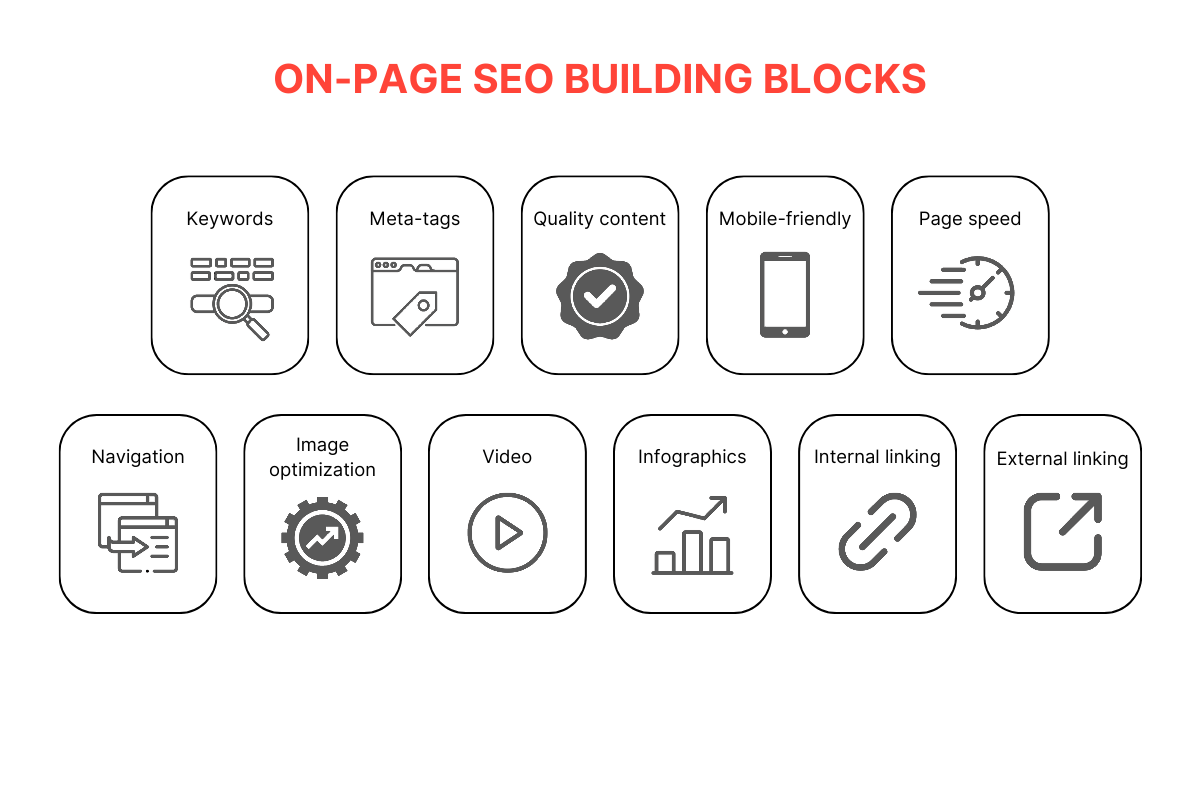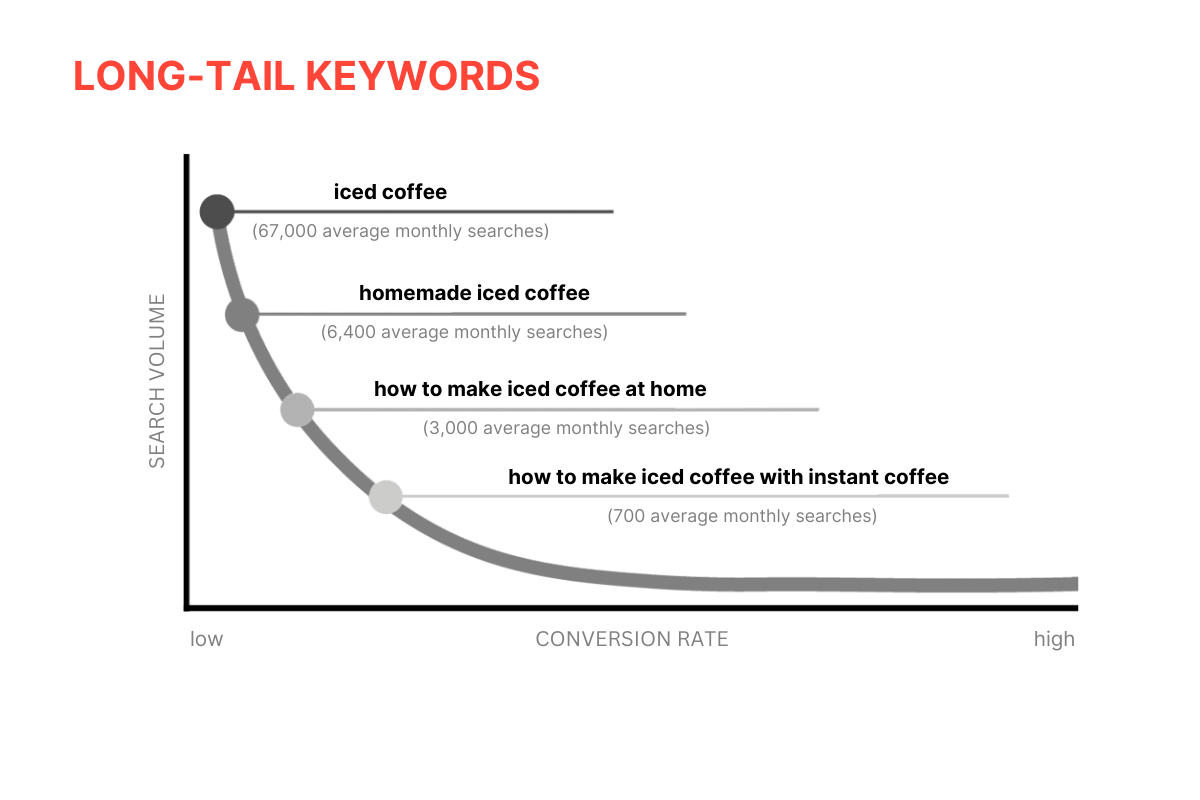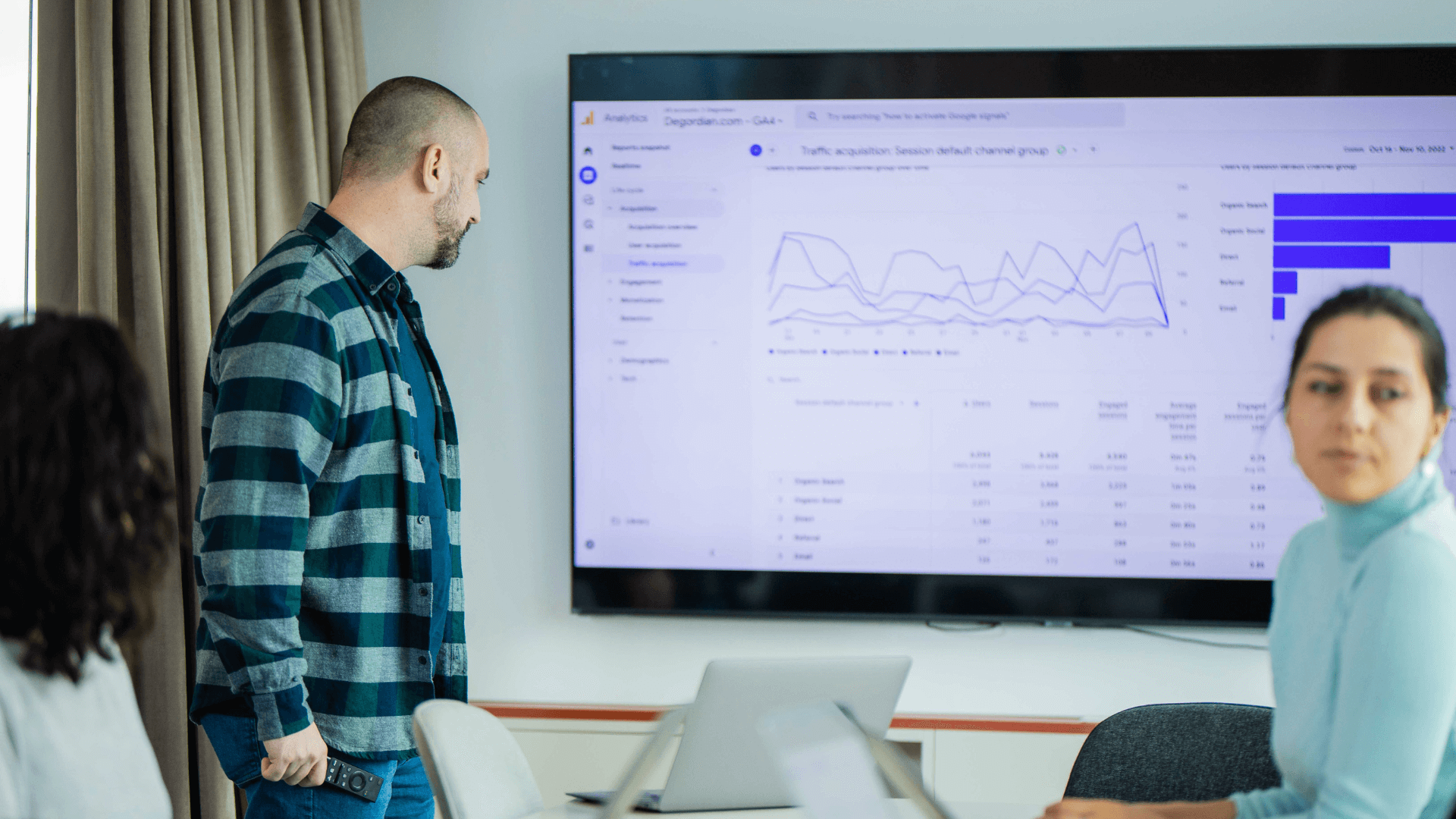Introduction: peeling back the layers of on-page SEO
Ever wondered, “What is on-page SEO”? You’re not alone. With the ever-evolving digital landscape, it’s crucial to understand how on-page SEO works to stay ahead of the game. In this in-depth guide, we’ll dive into the nitty-gritty of on-page SEO and help you create content that both search engines and users will love. So, let’s get this show on the road!
What is on-page SEO?
On-page SEO is the practice of optimizing individual web pages to rank higher and gain more relevant traffic in search engines. It involves tweaking various elements like content, keywords, meta-tags, and more to make your website more appealing to search engines. In short, on-page SEO is all about making your content searchable, readable, and valuable to users.

The building blocks of on-page SEO
Keywords: The foundation of your SEO strategy
Keywords are the backbone of your on-page SEO efforts. To create content that ranks, you need to identify the right keywords and use them strategically throughout your content. Here’s how:
- Keyword research: Find relevant keywords by using tools like Google Keyword Planner or SEMrush.
- Long-tail keywords: Opt for long-tail keywords, which are more specific and less competitive than short-tail keywords.
- Keyword placement: Use your primary keyword in the title, headers, and the first 100 words of your content. Sprinkle related keywords throughout your text.

Meta-tags: The invisible powerhouses
Meta-tags are snippets of code that help search engines understand your content. The two most essential meta-tags are:
- Meta-title: The title that appears on search engine results pages (SERPs). Keep it under 60 characters and include your main keyword.
- Meta-description: The brief description that appears under the meta-title on SERPs. Keep it under 155 characters and include your main keyword.
Content quality: The heart and soul of on-page SEO
Great content is the lifeblood of on-page SEO. Follow these tips to create a content strategy that shines:
- Originality: Create unique, fresh content that stands out from the crowd.
- Relevance: Make your content valuable and informative for your target audience.
- Readability: Use short sentences, bullet points, and subheadings to make your content easy to read.
The user experience factor
On-page SEO isn’t just about making search engines happy; it’s also about providing a top-notch user experience (UX) by combining on-page SEO with technical SEO. Here are some key UX factors to consider:
Mobile-friendliness
With more people using mobile devices to access the internet, it’s crucial to optimize your website for mobile users. Use a responsive design and ensure that your website loads quickly on mobile devices.
Page speed
Nobody likes waiting for a slow website to load. Optimize your website’s speed by compressing images, using browser caching, and minimizing HTTP requests.
Navigation
Make it easy for users to find what they’re looking for by having a clear and intuitive site structure. Use descriptive menu labels and include a search bar to help users navigate your website with ease.
The role of multimedia
Using multimedia elements like images, videos, and infographics can make your content more engaging and shareable. Here’s how to optimize your multimedia for on-page SEO:
Image optimization
Optimize your images by compressing them, using descriptive file names, and adding alt text for improved accessibility.
Video content
Create engaging video content and include keyword-rich titles, descriptions, and transcripts to boost your on-page SEO.
Infographics
Design eye-catching infographics that provide valuable information, and include your main keywords in the title and description.
What is on-page SEO without internal & external linking?
Internal linking
Internal links are hyperlinks that connect one page of your website to another. They help users navigate your site and distribute link equity, improving your site’s overall SEO. Use descriptive anchor text and link to related content within your site.
External linking
External links, also referred to as backlinks, are links that come from other websites and guide users to your own content. They play a vital role in off-page SEO. In the world of SEO, the collaboration between on-page and off-page optimization is essential for achieving the best possible outcomes. Backlinks act as endorsements, signaling to search engines that your content is valuable and trustworthy.
Social media signals
Though social media isn’t a direct ranking factor, it can still influence your on-page SEO. Sharing your content on social media platforms can increase your visibility and drive more traffic to your site. Encourage social sharing by including social media buttons on your website, which can help expand your local reach and improve your online presence within your target geographic area.
FAQs: Answering your burning questions
What is the difference between on-page and off-page SEO?
On-page SEO focuses on optimizing individual web pages and their content, while off-page SEO involves external factors like backlinks and social media signals.
How often should I update my on-page SEO?
You should continuously monitor and update your on-page SEO to keep up with search engine algorithm updates and changes in user behavior.
Is keyword stuffing a good on-page SEO strategy?
No, keyword stuffing can harm your on-page SEO and lead to penalties from search engines. Instead, use keywords naturally and focus on creating valuable content for your audience.
How can I measure the success of my on-page SEO efforts?
You can track your on-page SEO performance using tools like Google Analytics, Google Search Console, and various rank tracking tools.
Can I over-optimize my on-page SEO?
Yes, over-optimization can lead to penalties from search engines. Focus on creating content for your users, not just for search engines.
Is on-page SEO more important than off-page SEO?
Both on-page and off-page SEO are vital for a well-rounded SEO strategy. They complement each other and contribute to your overall search engine rankings.
Conclusion: On-page SEO – A never-ending journey
Now that you’ve uncovered the secrets of on-page SEO, it’s time to put these strategies into action and see real results. Remember, on-page SEO is an ongoing process, so keep learning, experimenting, and refining your approach. If you ever feel lost or need a friendly hand, don’t hesitate to reach out. Our performance marketing team is here to help! Just remember, becoming an SEO hero requires dedication and persistence. Stay curious, keep optimizing, and prepare to witness your website soar higher and higher in the search engine rankings.




